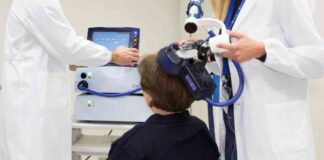Health and Human Services Secretary Robert F. Kennedy Jr. is being taken to court, not because the person bringing the lawsuit wants to, but because they feel it is necessary to protect the integrity of science. Raised in a family where fairness was more than just a value, it was a way of life, the individual behind the lawsuit comes from a long line of proud union nurses dedicated to serving vulnerable patients. Their career has been shaped by these values, starting with their time in AmeriCorps at an LGBTQ+ health center in New York City, where they provided HIV counseling, trained physicians, and supported LGBTQ+ teen mothers as a birth doula.
As a Harvard-trained epidemiologist, this individual has mentored numerous emerging health leaders and authored over 100 peer-reviewed publications. Their research projects have undergone rigorous peer review and have been recognized for their scientific merit and public health relevance. One of their most significant achievements was the establishment of one of the nation’s largest federally funded LGBTQ+ health research programs, culminating in the launch of the LGBTQ Health Center of Excellence.
Unfortunately, their work and the future of the center are now in jeopardy. Grants that supported their research projects have been terminated by the NIH, citing reasons that their work no longer aligns with agency priorities. This abrupt decision has had devastating consequences, not only for the individual but also for their team members and the communities they serve. The termination of these grants means that important research findings, such as the increased risk of stillbirth among lesbians and the impact of anti-LGBTQ+ laws on mental health, may never see the light of day.
In response to this targeted attack on their research, the individual has joined a lawsuit against Kennedy, HHS, and NIH, along with three other researchers and three organizations. The lawsuit argues that these grant terminations are not only procedurally improper but also violate congressional mandates, the NIH’s strategic plan, and the Constitution. The case is set to be heard in federal district court in Massachusetts, with a preliminary injunction hearing scheduled for May 22.
Despite the challenges and risks involved in taking legal action against the government, the individual feels compelled to fight for their right to continue serving the public through science. They recognize the broader implications of this fight, not just in terms of restoring their grants but also in defending the integrity of scientific research and democratic values. The individual urges others to speak out and join them in standing up for truth, the future of our children, and democracy.
As they navigate this difficult situation, the individual remains committed to rebuilding their research and ensuring the continuation of their center’s vital work at Harvard. They are proud to be a part of a university that has filed its own lawsuit to defend scientific freedom and call on other institutions, organizations, and individuals to support this cause. Ultimately, the individual stresses the importance of sustained public investment in biomedical research to save lives, drive innovation, and maintain the U.S.’s global leadership in health and science.
This fight is not just about one person’s grants or research projects; it is about the very essence of science and its role in society. The individual chooses to fight, and they hope that others will join them in this critical battle for the future of science and democracy.


















